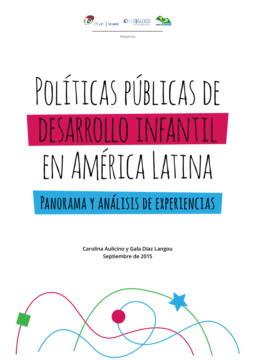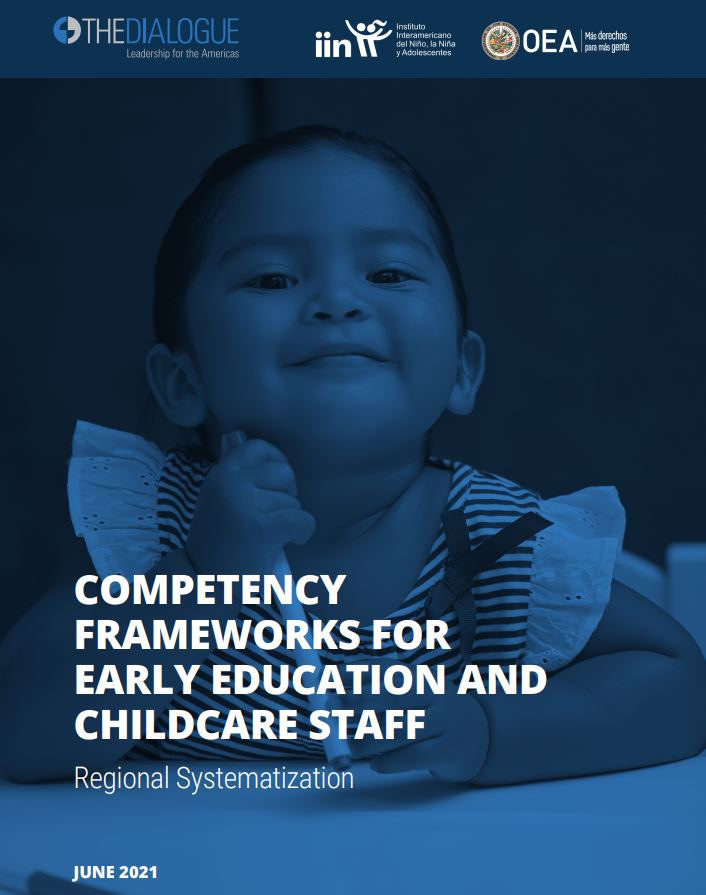
An Agenda for Early Childhood Development
Early childhood development is one of the investments with the highest returns and allows us to achieve, simultaneously, equity and efficiency objectives.
This post is also available in: Español
The path towards establishing government-wide early childhood public policies varies throughout Latin America and the Caribbean. As a result, it has been proposed to the countries of the region to establish an Early Childhood Education Quality Agenda that considers a broad and relevant overview of early childhood, embraces the relationship between learning and development, and emphasizes both structural and procedural factors.
The sixth recommendation of the Declaration of the Regional Forum: Towards Quality Early Childhood Education, highlights the importance of developing a competency framework for those working on the subject, promoting a system of training—both initial and continuous—and certification of competencies that strengthen early childhood care in the region. This study, prepared by Javier Quesada and Claudia Castro with the support of the Inter-American Dialogue, the Inter-American Institute for Children and Adolescents (IIN-OAS), and the LEGO Foundation, proposes a framework of basic and universal competencies that should be included in training/certification programs so that they are present in a future curriculum for the region.
This proposal for a framework of basic and universal competencies includes input from a validation workshop held in May with the participation of experts from Argentina, Chile, Colombia, Ecuador, Mexico, Paraguay, Peru, and Uruguay. The framework is a common starting point that each of the countries can expand upon based on their particular situation, taking into account:
Rights: Performs educational and childhood care practices incorporating the perspective of rights in the role, promoting the assertion of rights by children and families based on the best interests of the child.
Early Childhood Development: Manages actions and experiences in safe and stimulating environments in accordance with the interests and developmental level of the child. As task organizers, professionals work to establish quality interpersonal bonds, proper treatment, and play.
Family and Community: Shares guidelines and strengthens the “positive or enriching” parenting practices of families, enhancing the levels of development of children, involving the community in early childhood care.
Health and Nutrition: Carries out duties and educational activities for children, promoting healthy habits, progressive autonomy, and considers the physical and mental health needs during growth and development.
Diversity and Gender: Proposes childhood care and education experiences that take diversity into account, understanding that at this early stage of socialization roles, attributes, appearances, behaviors, and social functions are established.
Pedagogical Skills and Capacities: Observes, listens and respects the opinions of others in interactions. Understands learning as a process of open collaboration (between family, institution, community, and children) that ensures social inclusion and creates the foundations for the development-learning process.
Early childhood development is one of the investments with the highest returns and allows us to achieve, simultaneously, equity and efficiency objectives.
This post is also available in: SpanishBuscando ofrecer acceso a la educación a la niñez trabajadora y, por esta vía, reducir también el trabajo infantil, se han desarrollado diversas experiencias en Centroamérica. PREAL destaca aquí algunas de las que han sido documentadas por parte del proyecto Primero Aprendo que se…
This post is also available in: SpanishLos esfuerzos por erradicar el trabajo infantil a nivel mundial están mostrando positivos resultados, según señala el informe global “La eliminación del trabajo infantil: un objetivo a nuestro alcance”, difundido este año por la Oficina Internacional del Trabajo (OIT). En Centroamérica también se han…
